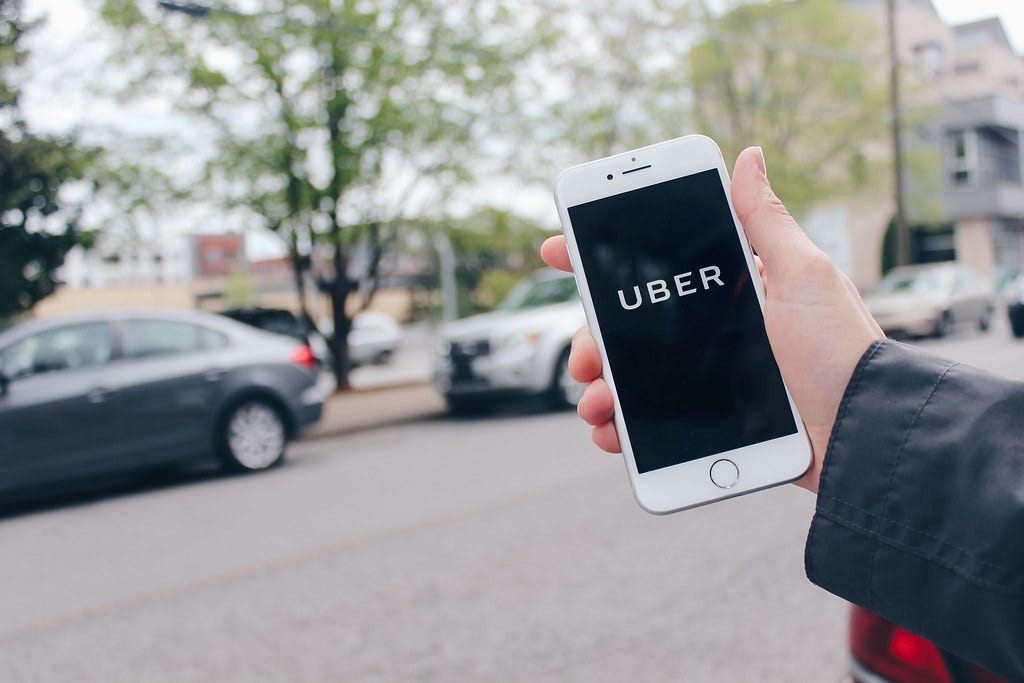Borkowski Weekly Media Trends 19-03-2021
BBC dispersal | The Glossier 'Glitch' | Higher pay at Uber
Don’t like reading? Listen to our Trends podcast with Mark B’s trend of the week.
This week the boss wrote about Piers Morgan, the man who has perfected the art of getting fired. Read it over on his half of the Substack to find out Mark’s reasons why Piers is in a better position post-Good Morning Britain than ever before.
Coincidentally, the Marmite man himself loves our Substack, and so should you. (Subscribe 😎)


Here are the trends we’ve been following this week:
BBC tells London ‘Thank U Next’
It’s being described as the BBC’s biggest transformation in decades. No, the BBC aren’t turning their whole operation into one massive NFT… they are however, supposedly, relocating thousands of jobs outside of London for “real national service” according to BBC chief Tim Davie, the mastermind behind this move.
Where to start? As Trends regulars know, we are quick to criticise the BBC’s comms tactics and this time is no different sadly. Whilst the rationale behind the move makes sense, it’s caused an uproar from within the organisation—staff aren’t happy with the abruptness of the decision.
Tim Davie is currently facing US tech giants dominating our attention, a licence fee debate threatening to dismantle the whole operation and trying to hit an £80m savings target by 2022. His response? Transition the BBC from its metropolitan roots to different parts of the country, permanently. In this new age of agile working, this feels like a knee-jerk reaction to various factors plaguing the BBC. Instead of meticulously planning this move, it would appear—according to staffers having to relocate—the timing is a bit of a shambles.
Our attention has now shifted on whether significant BBC staff will fall in line. If some of the bigger names refuse to move, it will threaten the integrity of the whole operation. It has been confirmed that Alan Davey (Radio 3 controller) will not be relocating, despite the station’s shift to Salford. Tim Davie himself will maintain his London residency, leaving a sour taste in the mouth for those moving as far afield as Glasgow.
Is pranking your customers the new publicity stunt?
On the 5th March, at about 11am, the phones of thousands of young women around the UK erupted with Whatsapp alerts: ‘HAVE YOU SEEN THE GLOSSIER GLITCH’.
I, one humble Trends writer, was swept up in the frenzy. Within minutes, several friends had messaged me to tell me there was an error on the website of Glossier – a cult beauty brand than can, in part, be credited with the dominance of Millennial Pink 5 years ago – that was allowing shoppers to use a code that would get them 50% off. Moments after that and my housemates and I had coordinated a mass order.
After two hours and a tidal wave of orders, the glitch was ‘fixed’. It was only then that the mist faded and customers released that the glitch might have been a very simple, and completely genius, stunt. Glossier, after all, found fame after tapping into the mood of the moment. It knows its audience; it knew that a Friday in March was the perfect day to target legions of customers daydreaming about the end of lockdown and their need for a Spring ‘glow up’. ‘Leaking’ such a code relied heavily on the ultra-fast spread of information. But knowing how glued to their phones their customers are, it wasn’t much of a gamble.
As someone who was fooled by the prank, I can say how well it worked. The excitement of it was fun enough that I’m not in the least annoyed to think it was a stunt. Instead, I doth my cap to a brand whose relevance had been dwindling for the past year. Meanwhile, my interest in their products is refreshed by the new haul I own.
Testament to its success, two weeks later and the format has been mimicked by Netflix, who has released ‘secret codes’ for users to access ‘hidden series and films’. Whilst it doesn’t have the same urgency as Glossier’s ‘FREE STUFF NOW’ move, it appeals to the same desire of internet-obsessed consumers to find, spread and share information. This is a trend in stunt-pulling that might be here to stay.
Uber’s back-up may cause severe reputational tire damage
In other news, Uber has agreed to pay its drivers national living wage and holiday pay, having previously argued that they were not obliged to do so on the basis that their drivers were self-employed contractors, an assertion rejected by the Supreme Court.
On one hand, the story has become a cause celebre for workers’ rights activists and left-of-centre commentators who perceive a powerful company to be using loopholes to avoid meeting the basic standards of the labour market. On the more pro-market, right-of-centre side, Uber is seen as a dynamic, modernising force, and an enemy of red tape and the hated Unions.
Uber’s strategy today has been to pretend that only the latter side exists, or at least (beyond a cursory nod to their critics) talk exclusively to that audience and spin the notion that they have proactively and progressively ‘turned the page for drivers’ rights’ while—though publicly denying this is the case—appearing to brief that their customers will be footing the bill via fare hikes, as was the case under similar circumstances in California.
This strategy has curried them some favour in the media. The Evening Standard drank of the Kool-Aid to allow Uber’s CEO an unvarnished thousand-word pat-in-the-back (under the thin guise of an op-ed) and some (but not all) commentators in right-leaning titles have used the case as a stick with which to beat their enemies (the Unions and lefties) without exactly garnishing the taxi provider with praise.
These are limited returns, though and fail to take into account two key tenets of crisis communications: firstly, tailor your message to your audience; secondly, nullify your critics by talking to them directly and with respect. Uber has done little to dissuade its opponents that this was anything other than a humiliating legal defeat and climbdown. Even with the Guardian celebrating this as a nail in the coffin of the Gig Economy, the fact remains that some campaigners saw today’s measures as insufficient and, as the FT pointed out, that Uber has always consistently struggled for profitability despite its monstrous market valuation. Uber is vulnerable, and its failure to appease its critics, or at least to demonstrate enough self-assurance and security not to try to spin their way out of this, has done little to dampen the scent of blood on its enemies’ nostrils.





